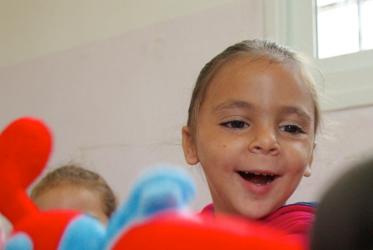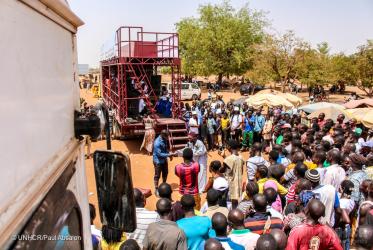Displaying 81 - 100 of 144
With ongoing discourse about people on the move, CCME’s work grows
03 November 2017
WCC expresses grave concern for Rohingya people in Myanmar
16 September 2017
Second Bible study on stateless persons available for Advent use
08 December 2016
Plans for 2017 decided by WCC Executive Committee
01 December 2016
Bible study on stateless persons available for Advent use
29 November 2016
WCC strengthens call to end statelessness
08 November 2016
Young people reflect on interreligious studies
23 August 2016
A fresh agenda for ecumenism in Asia
20 July 2016
The Invisible among Us
01 July 2016
God’s forgotten children
20 June 2016













